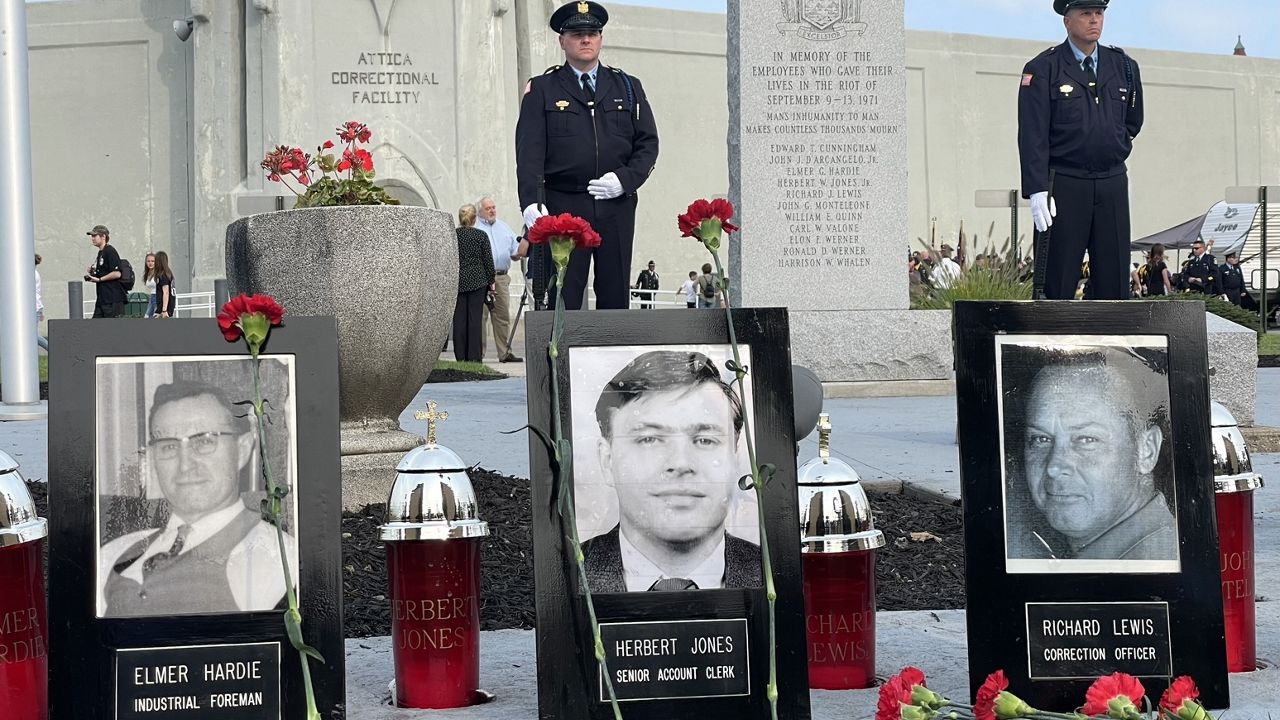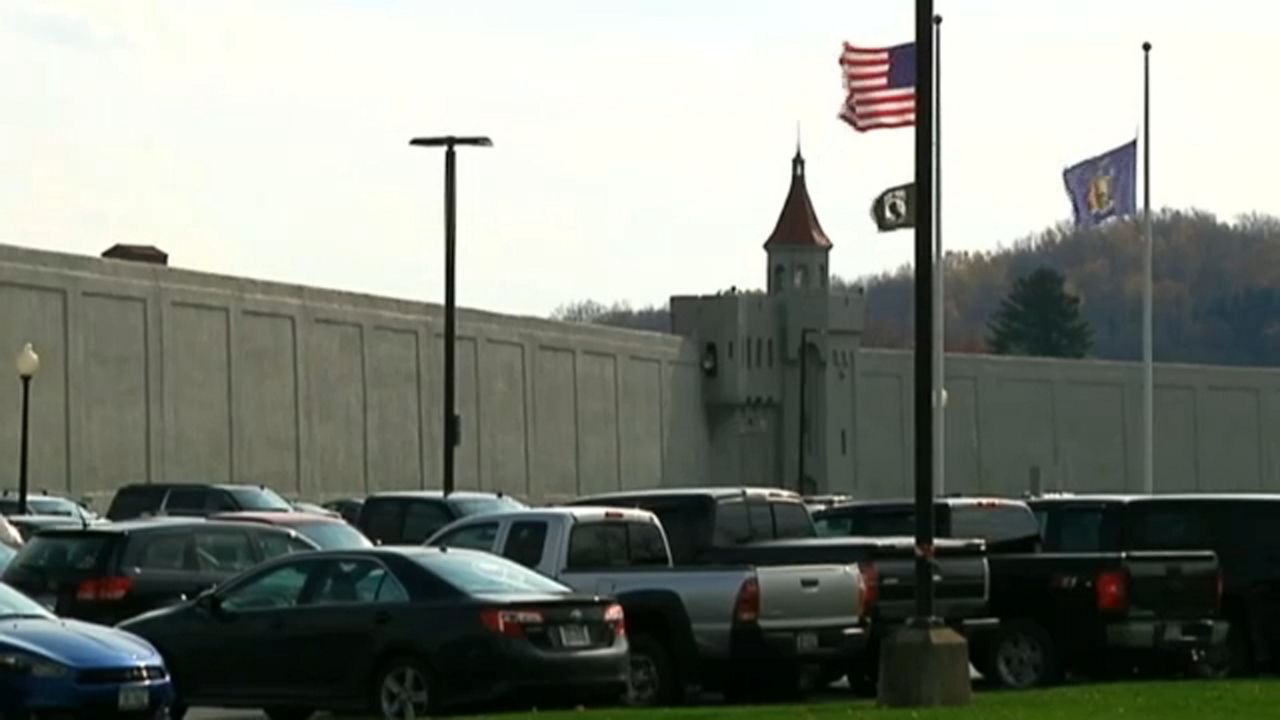ATTICA, N.Y. — Fifty years ago this week, inmates took control of Attica Correctional Facility in Wyoming County. Within days, the retaking of the prison by state police ended the bloodiest prison siege in U.S. prison history. For one woman, the years since have been like a puzzle as she’s tried to connect the pieces of the life of her father, a corrections officer killed in Attica.
The story has been published and her book is now available.
Dee Quinn Miller has been slowly putting the pieces together for decades.
“I know who I was,” said Miller, of Batavia. “But I didn’t know what my history was. Like, who is my dad? So that was hugely important for me to put those pieces together.”
William Quinn was a guard at Attica Correctional Facility in September of 1971. Demanding more rights and better living conditions, Attica inmates took over the prison on September 9 of that year.
“That day was like any other day,” recalls Miller. “My father went up and went to work and I went off to school.”
Just 5-years-old then, Miller remembers the hearing prison whistle, and the principal calling her out of her first-grade classroom. Her grandparents picked her up, and took her and her siblings to their house. They told them their mom was at the hospital with their dad, who had been hurt at the prison.
William was gravely wounded and died two days later, the first corrections officer killed by inmates in what would become America’s deadliest prison riot.
“I think that the administration at the prison wanted to keep a lid on that,” Miller said. “But news reporters got to it very, very quickly. And while the inmates are in the yard, they see it on the TV that the correction officer, Bill Quinn had died. And they knew what that meant for them.”
Miller met journalist and author Gary Craig two decades ago, when the Rochester Democrat & Chronicle reporter was covering restitution hearings for former Attica inmates.
“We've known each other forever,” said Craig. “So I think we communicate well enough.”
After years of talking about it, Craig helped convince Miller to write a book. Its release this week coincides with the 50th anniversary of the Attica uprising. The book is entitled “The Prison Guard's Daughter: My Journey Through the Ashes of Attica.”
“I’ve never actually been somebody that kind of wanted to write what you would call an ‘as told to’ book unless it was hers,” said Craig. “Because her story to me is just so powerful and moving and educational, and something we can all learn from.”
Miller says she grew up with so many unanswered questions about her father’s death. Her family never really talked much about what really happened. So Miller set out to find out.
“And then when I hit college it was all over,” she said. “Everything I could get my hands on, I read. Any person that would talk to me I would try and talk to.”
That included prison administrators, guards and even inmates, many of whom spoke fondly of her father. Some of whom Miller grew to consider friends.
“I mean, let's face it, her dad was killed by inmates,” said Craig. “He was the one corrections officer killed by inmates. And there are a lot of people that would have said, collectively, I'm never going to deal with an inmate from Attica because of what happened to my father, and instead she befriended them. She learned more about her dad from them.”
“I’m a little concerned about how some people may react,” said Miller. “But at the same time, I've worked a really long time at uncovering the truth.”
The truth about what happened at Attica didn’t come easily for anyone. When state police retook the prison, 29 inmates and ten prison employees died in the gunfire, deaths which were initially blamed solely on the inmates.
A cover-up which motivated miller just as much as the search for her father’s story.
“It’s disgusting,” she said. “Yeah, this is like where I think I really get probably the most angry. You know you have the state of New York who knows what they did, very calculated moves to cover it up.”
Miller was instrumental in founding Forgotten Victims of Attica, comprised of surviving Attica hostages, their families and families of those killed. The group has fought for compensation and the unsealing of riot-related records.
Fifty years later, one thing is still missing. An apology.
“Personally, I think an apology is so important,” said Miller. “Regardless of its 50 years later, because when something happens that’s so egregious, and the individuals who suffered never got an apology — a meaningful apology — I think that it's a terrible thing to do.”
Whether that apology comes this year, or ever, is unknown. After finding the pieces she searched for, Miller intends to keep the story of her father, and the Attica prison uprising, alive.
“Attica is and forever will be a cautionary tale,” she said.








